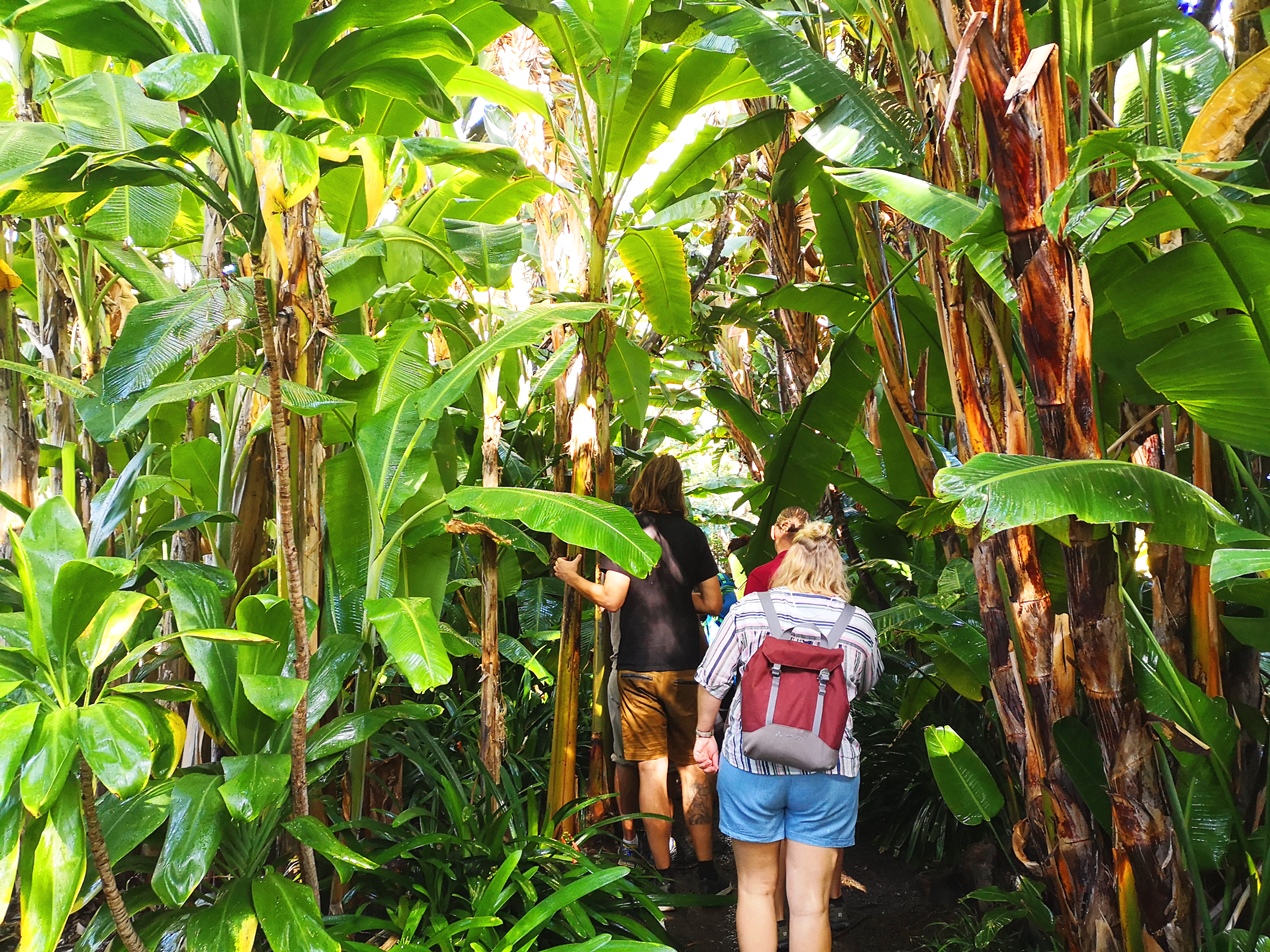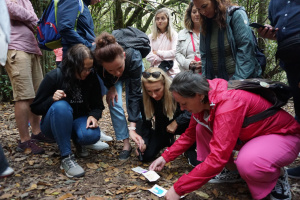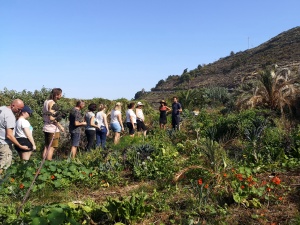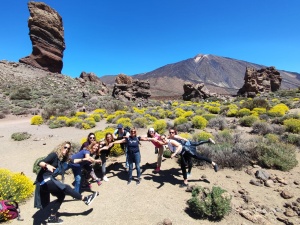Learning in nature, in the real world has happened ever since humans exist. The small boxes called classrooms/training rooms have been invented only few centuries ago. During the last decades, outdoor and nature-based education have become more and more popular as adult educators and teachers worldwide could see its benefits for the motivation, involvement and development of their learners.

This course will teach active learning and experiential learning methodologies in the context of ¨out-of-classroom¨ education. Through group exercises and practical workshops, the participants will be able to reflect on the versatility of outdoor education and how they can adapt formal learning in outdoor settings such as parks, gardens, squares and plazas, on the street, in the forests, mountains, beach etc. For example, the participants will learn about environmental education and garden-based learning by visiting a permaculture ecological garden, that fosters reconnection with nature and ecological food.
Adult educators and teachers will reflect and experience how to teach language skills, interculturality, personal and social skills through games, drama and improvisation theater techniques in outdoor settings. Each teacher or educator will have the opportunity to reflect on how they can apply the learnt methodologies to their local settings. For example, how to organize biology or geography field trips in the school garden or nearby park, biology and maths activities in a local shop or visiting a museum etc.
The nature of this course is highly practical and hands on, so the participants will experience themselves the innovative techniques while also reflecting on how to apply them to their context.
Competences to be acquired:
- Knowledge about outdoor education, nature-based learning and garden-based learning
- Knowledge and skills on how to apply experiential and active learning methodologies in outdoor settings
- Knowledge and skills on how to use games, drama and improvisation theatre in outdoor settings
- Competences on how to improve the motivation and involvement of students by applying outdoor education in different formal settings (language and literature, biology, maths, history, geography etc.)
- Competences on how to develop social skills and emotional intelligence through outdoor activities and games
- Skills and knowledge on how to develop a classroom/center plan on non-formal indoor and outdoor educational activities
- Knowledge on how to teach about ethics and risks in outdoor education
- Intercultural competences and enhanced cultural awareness
- Ability to create a stimulating and open learning environment and foster collective learning.
- Ability to do networking and create professional and personal relations with teachers from other countries.
Target audience
Adult education trainers, teachers (pre-school, primary, secondary, vocational, adult education centers), teachers trainers, school leaders and other school staff and professional workers that work with learners from disadvantaged backgrounds.
Training activities:
Day 1 – Outdoor education
- Introduction to the course
- Ice breaking: getting out of our comfort zone
- Indoors and outdoors games to build group cohesion
- Exchanging good practices on outdoor/nature-based/environmental education
- Approaches to outdoor education: fear-based/risk discourse vs positive approach
- Practical work in groups: Designing educational activities in the nearby streets, square, park, local shop.
- Reflection exercises: How can I adapt outdoor education in my work?
Day 2 – Social and emotional skills in outdoor education
- Warm-up and team building exercises
- How to use drama, improvisation theater techniques to teach social skills and emotional intelligence
- Developing spontaneity, intuition and active listening
- Exercise in pairs: The importance of eye-contact and expressing emotions
- Theater as a tool to teach languages (vocabulary, improving phonetic competences and narrative abilities)
- Exchange of good practices on integrating drama methodology in other subjects
- Reflection exercises: How can I adapt drama techniques in my work?

Day 3 – Visit and garden-based learning
- Guided visit and workshop in a Permaculture ecological garden. Ecological and regenerative approach to producing food.
- The connection of outdoor education and garden-based learning methodology in environmental education
- Teaching different subject in a garden through observation techniques and group work
- Reflection exercises: How can I use garden-based learning and observation techniques in my work? (environmental education, nutrition, biology, science, geography, sports etc.)
- Informal learning

Day 4 – Non-formal education in nature
- Warm up and group division exercises
- Experiential and active learning methodologies and non-formal education
- Introduction to Kolb’s Experiential learning cycles
- Think-Pair-Share: Experiential learning for stimulating and engaging environments
- Games and non-formal education exercises in nature
- Practical workshops
- Reflection exercises: How can I apply experiential and active learning methodologies in my work outdoors?
Day 5 – Field trip to Teide National Park
- Guided visit to Teide National Park to see Teide Volcano of over 3700m
- Ethics in nature
- Practical tips when organizing field trips
- Open discussion on possible future collaborations and planning follow up activities
- Summary of key learning points
- Final course evaluation and feedback
- Validation of learning outcomes and handling certificates
- Informal learning

Methodology
We tailor our working methods based upon the participants‘ needs and professional profiles in order to ensure easier adaptability and application of the tools to the real life.
Our standard methodology is based on active learning and it is highly participative and practical. We have a hands on approach that comprises group exercises, role plays, experiments, case studies and simulation exercises. We use collaborative learning techniques to foster the exchange of good practices and collective learning.
The pedagogical methods used in this training course are based on outdoor education, nature-based learning, garden-based learning, non-formal education, experiential learning and learning by doing. Our focus is on showing the participants how the learners’ motivation increases when they become the actors of their own learning because the teacher takes the role of facilitator or learning guide. Thus, the participants get the chance to experience on themselves the benefits of the active learning methodology at the same time as learning how to apply it in their work.
Energizers, games and group dynamics are foreseen daily in order to ensure a positive energy and a cooperative learning climate in the group.
Group reflections and daily brief feedback sessions are planned to help adapting the learning programme to the specific needs of the participants.
Certification and validation of learning outcomes
- Certificates of attendance
- Support with the Europass mobility certificates – to be issued by the applicant’s National Agency
Upon request, we also provide educational centers with additional documents that are required to certify the presence to the course and the competences learned. For example, we provide photos of the training course that can be used for dissemination purposes.
Pre-register to our course!
Tell us about your project. How many participants do you want to send? What are the profiles of the teachers/staff interested in the course?
